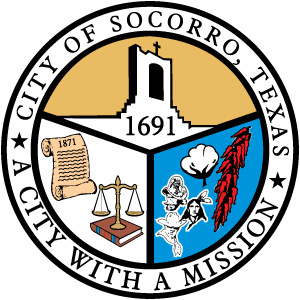The Socorro First Responder Mental Health Program is now available thanks to a grant through the Office of the Governors. The first responder mental health program helps first responders by providing mental health training, peer support, and resources to help cope with the daily stress of high risk public safety incidents.
The goal of the Socorro First Responder Mental Health Program is to increase mental health services directly to peace officers and first responders in Socorro, Texas. Funding requested for this project will fund high-quality mental health services and assistance to peace officers and first responders, as well as peer support group meetings over the 12 month project period. For the first time, peace officers and first responders in Socorro, Texas, will have access to free, confidential mental health services provided at the individual level and via peer support groups. This program will lead to a wide range of positive outcomes for peace officers and first responders in Socorro, Texas, including improved access to confidential and specialized mental health services, increased coping mechanisms and strategies, improved morale and productivity, reduced stress, and are duction of negative attitudes towards counseling and mental health services within the first responder community and community-wide.
The City of Socorro partnered with Emergence Health Network. As the Local Mental Health Authority for El Paso County, Texas, El Paso MHMR d/b/a Emergence Health Network is well positioned to provide high-quality mental health services and assistance to peace officers and first responders. We believe that this program will lead to a wide range of positive outcomes for peace officers and first responders in Socorro, Texas, to include improved access to confidential and specialized mental health services, increased coping mechanisms and strategies, improved morale and productivity, reduced stress, and are duction of negative attitudes towards counseling and mental health services within the law enforcement department and community wide.
Written by Lena Rojas with Tigua Next Generation Program


